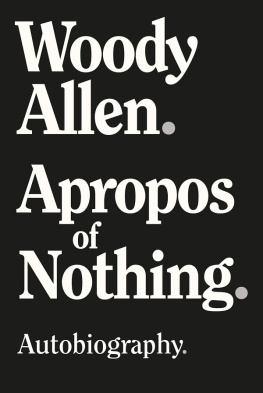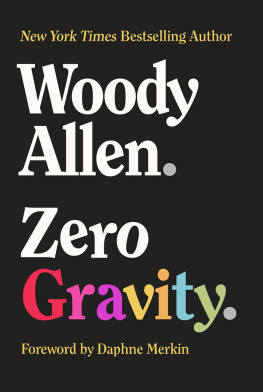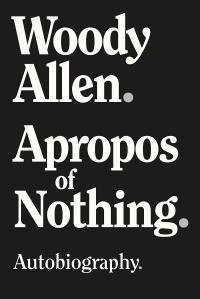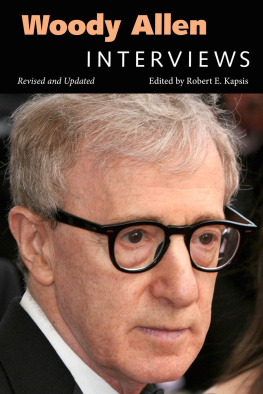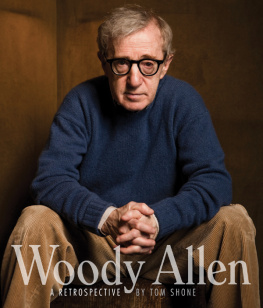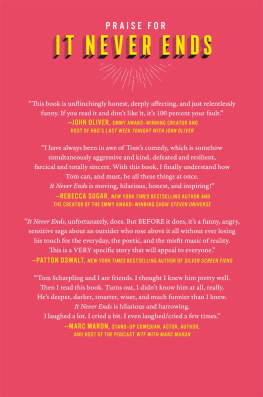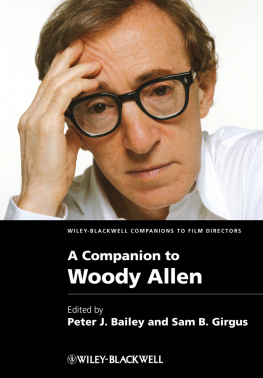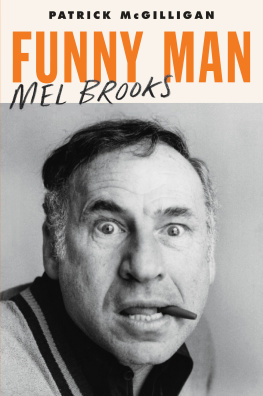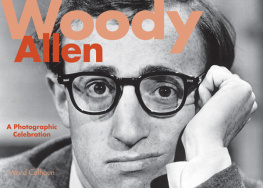Copyright 2020 by Woody Allen
All rights reserved. No part of this book may be reproduced in any manner without the express written consent of the publisher, except in the case of brief excerpts in critical reviews or articles. All
inquiries should be addressed to Arcade Publishing, 307 West 36th Street, 11th Floor, New York, NY 10018.
Arcade Publishing books may be purchased in bulk at special
discounts for sales promotion, corporate gifts, fund-raising, or
educational purposes. Special editions can also be created to
specifications. For details, contact the Special Sales Department, Arcade Publishing, 307 West 36th Street, 11th Floor,
New York, NY 10018 or arcade@skyhorsepublishing.com.
Arcade Publishing is a registered trademark of Skyhorse
Publishing, Inc., a Delaware corporation.
Visit our website at www.arcadepub.com.
10 9 8 7 6 5 4 3 2 1
Library of Congress Cataloging-in-Publication Data is available
on file.
Cover design by Albert Tang and Brian Peterson
Hardcover ISBN: 978-1-951627-34-8
Large Print Edition ISBN: 978-1-951627-35-5
Audio Book ISBN: 978-1-951627-36-2
Ebook ISBN: 978-1-951627-37-9
For Soon-Yi, the best.
I had her eating out of
my hand and then I noticed my arm was missing.
Like Holden, I dont feel like going into all that David Copperfield kind of crap, although in my case, a little about my parents you may find more interesting than reading about me. Like my father, born in Brooklyn when it was all farms, ball boy for the early Brooklyn Dodgers, a pool hustler, a bookmaker, a small man but a tough Jew in fancy shirts with slicked-back patent leather hair a la George Raft. No high school, the Navy at sixteen, on a firing squad in France when they killed an American sailor for raping a local girl. A medal-winning marksman, always loved pulling a trigger and carried a pistol till the day he died with a full head of silver hair and twenty-twenty eyesight at a hundred. One night during World War I his boat got hit by a shell somewhere off the coast in the icy waters of Europe. It sank. Everyone drowned except for three guys who made the miles-long swim to shore. He was one of the three that could handle the Atlantic. But thats how close I came to never being born. The war ends. His father whos made some dough always spoiled him, favoring him shamelessly over his two dim-witted siblings. And I mean dim-witted. As a kid, I always thought his sister reminded me of a circus pinhead. His brother, weak, wan, and degenerate looking, drifted around the Flatbush streets peddling newspapers till he dissolved like a pale wafer. White, whiter, gone. So Dads dad buys his favorite sailor boy a real fancy car in which my father tools around postWorld War I Europe. When he comes home, the old man, my grandfather, has added a few zeroes to his bank account and smokes Corona Coronas. Hes the only Jew working as the traveling rep for a big coffee company. My father runs errands for him, and one day lugging some coffee sacks around he passes a courthouse, and down the steps strolls Kid Dropper, a thug of the times. The Kid gets into a car and some nonentity named Louie Cohen jumps on the car and puts four slugs through the window while my dad stands there staring. The old man told me this tale many times as a bedtime story, which was a lot more exciting than Flopsy, Mopsy, Cotton-tail, and Peter.
Meanwhile, my fathers father, looking to become an industry, buys a string of taxicabs and a number of movie houses including the Midwood Theater, where I would spend so much of my childhood in flight from reality, but that came later. I first had to be born. Unfortunately, prior to that little cosmic long shot, Dads dad, in a burst of manic euphoria, bet more and more on Wall Street, and you can see where this is going. On a certain Thursday the stock market did a big Brodie, and my grandfather, high roller that he was, was reduced to instant abject poverty. The cabs go, the movie houses go, the coffee company bosses jump out windows. My father, suddenly responsible for his own caloric intake, is forced to go on the hustle; he drives a cab, runs a poolroom, strikes out with assorted scams and makes book. Summers he is paid to go to Saratoga to attend to questionable horse-racing business for Albert Anastasia. Summers upstate were another series of bedtime stories. How he loved that life. Fancy clothes, a big per diem, sexy women, and then somehow he meets my mother. Tilt. How he wound up with Nettie is a mystery on a par with dark matter. Two characters as mismatched as Hannah Arendt and Nathan Detroit, they disagreed on every single issue except Hitler and my report cards. And yet with all the verbal carnage, they stayed married for seventy yearsout of spite, I suspect. Still, Im sure they loved each other in their own way, a way known perhaps only to a few headhunting tribes in Borneo.
In Moms defense I have to say Nettie Cherry was a wonderful woman; bright, hardworking, sacrificing. She was faithful and loving and decent but not, let us say, physically prepossessing. When I said years later my mother looked like Groucho Marx, people thought I was kidding. In her last years, she suffered from dementia and died at ninety-six. Delusional as she was, at the end she never lost her ability to kvetch, which she had raised to an art form. Dad, spry into his midnineties, never a worry nor a care ever disturbed his sleep. Nor a single thought his waking hours. His philosophy amounted to If you dont have your health you got nothing, wisdom deeper than all the complexity of Western thought, succinct as a fortune cookie. And he kept his health. Nothing bothers me, he would brag. Youre too stupid for anything to bother you, Mom would patiently try to explain. Mom had five sisters, one homelier than the next, with Mom arguably the homeliest of the swarm. Let me put it this way: Freuds Oedipal theory that all us men unconsciously want to kill our fathers and marry our mothers hits a brick wall when it comes to my mother.
Sadly, even though my mother was a much better parent, much more responsible, more honest, and more mature than my not-so-moral, philandering father, I loved him more. Everybody did. I guess because he was a sweet guy, warmer, more demonstrably affectionate, while she took no prisoners. She was the one who kept the family from going under. She worked as a bookkeeper in a flower shop. She ran the household, cooked the meals, paid the bills, made sure there was fresh cheese in the traps while my father peeled off twenties he couldnt afford and stuffed them into my pocket while I slept.
On those rare occasions over the years when he hit his number, we all got cut in big-time. Dad played the numbers every single day rain or shine. It was the closest thing in his life to religious observance. And whether he left the house with one dollar or one hundred dollars, he spent it all before returning home. On what? Well, clothes and other essential items, like tricky golf balls that rolled funny and he could use to cheat his pals. And he spent it on me and my sister, Letty. He spoiled us with the same generous freedom with which his father had spoiled him. Example: at one point, Dad was a waiter on the Bowery working nights for no salary, only tips. Yet every morning I woke upI was going to high school at the timethere on my night table was five bucks. The other kids I knew were getting fifty cents or maybe one dollar allowance a week. I was getting five bucks a day! What did I do with it? Ate out, bought magic tricks, used it to bankroll my card or crap games.
See, I had become this amateur magician because I loved everything about magic. I always took to anything that required solitude, like practicing sleight of hand or playing a horn or writing, as it kept me from having to deal with other humans who, for no explainable reason, I didnt like nor trust. I say no reason because I came from a large, loving, extended family who were all nice to me. Its like I was a genetically born louse. Meanwhile, Id sit all alone and practice card moves and coin moves, manipulating the deck, false shuffles, false cuts, bottom dealing, palming. Anyhow, it was a short jump for a born louse, from pulling a rabbit from a hat to realizing I could cheat at cards. Having inherited my fathers DNA for dishonesty, I was soon hustling at poker, cleaning out the unsuspecting, dealing seconds, hopping the cut, and pocketing everyones allowance.
Next page
